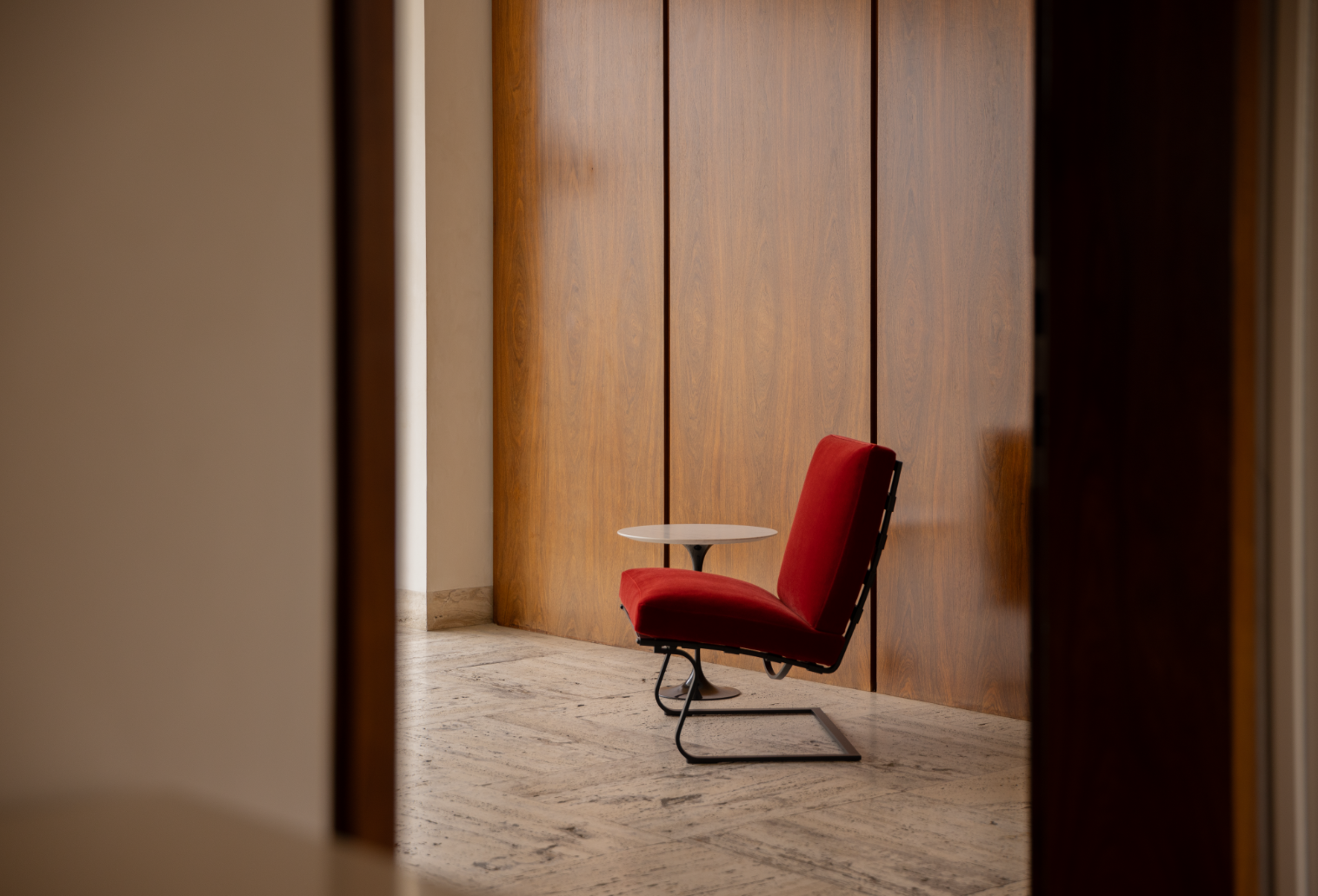
There is something undeniably, irrepressibly joyful about sitting on a good cantilever chair - the gentle bounce brings a child-like sense of glee to even the most curmudgeonly demeanour. And, after swooning at the preview unveiled during Salone del Mobile earlier this year, we are delighted that Knoll is bringing back one of history’s finest cantilevered seats to market: Ludwig Mies van der Rohe’s Tugendhat Chair.
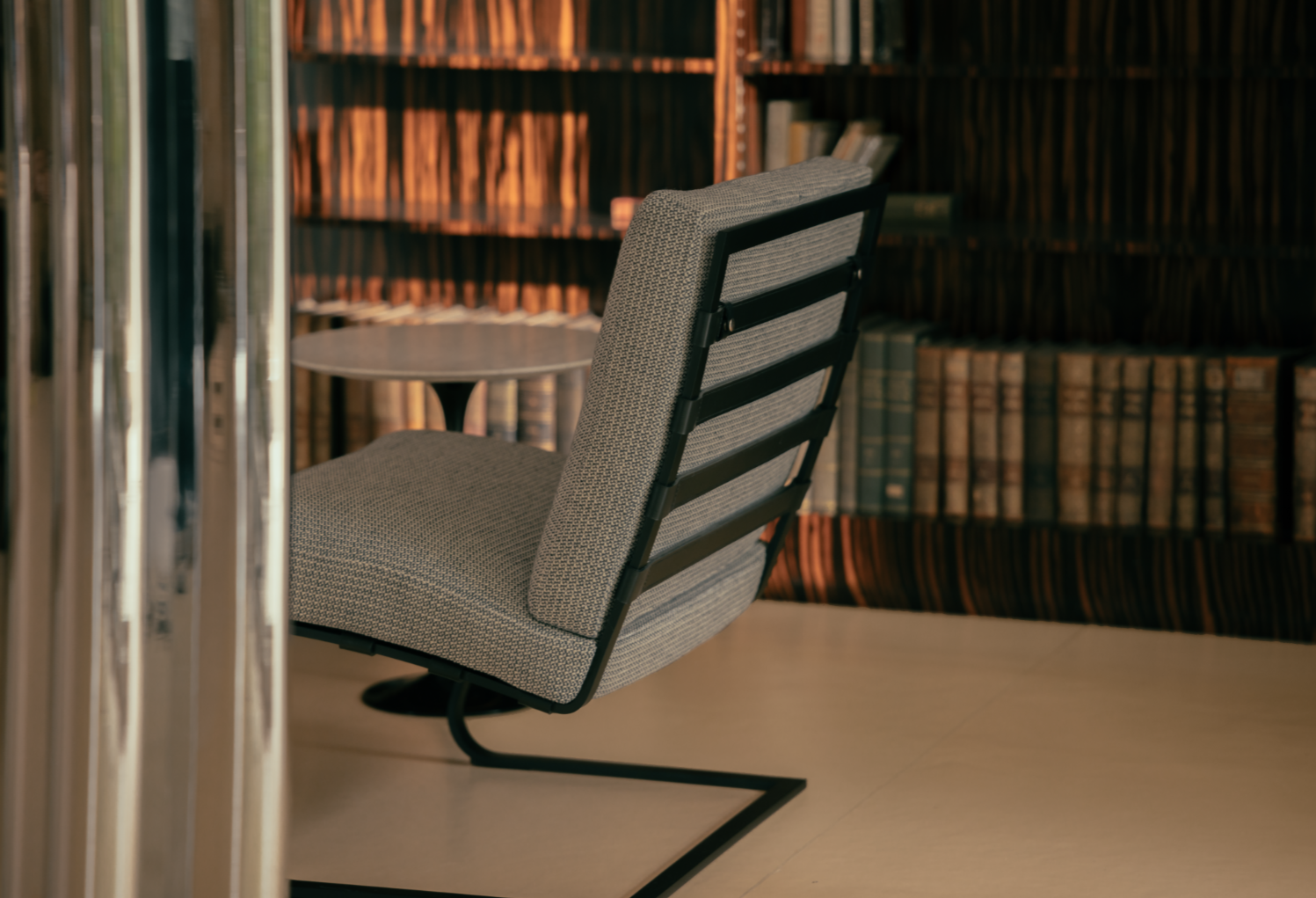
The Tugendhat Chair was originally designed in 1929 for the legendary villa of the same name, itself designed and built for the family of the same name in Brno, in the Czech Republic, by Mies and Lilly Reich. The Tugendhat Villa is surely one of the greatest examples of total design. From landscape to architecture to interior to furniture down to every last detail, the villa was more than a project or a commission, it was a world-building exercise for van der Rohe and Reich, and the Tugendhats too, of course (one hopes). Still today, the experience of stepping into the villa and its grounds is utterly transporting. It is a portal to a beautiful, better world.
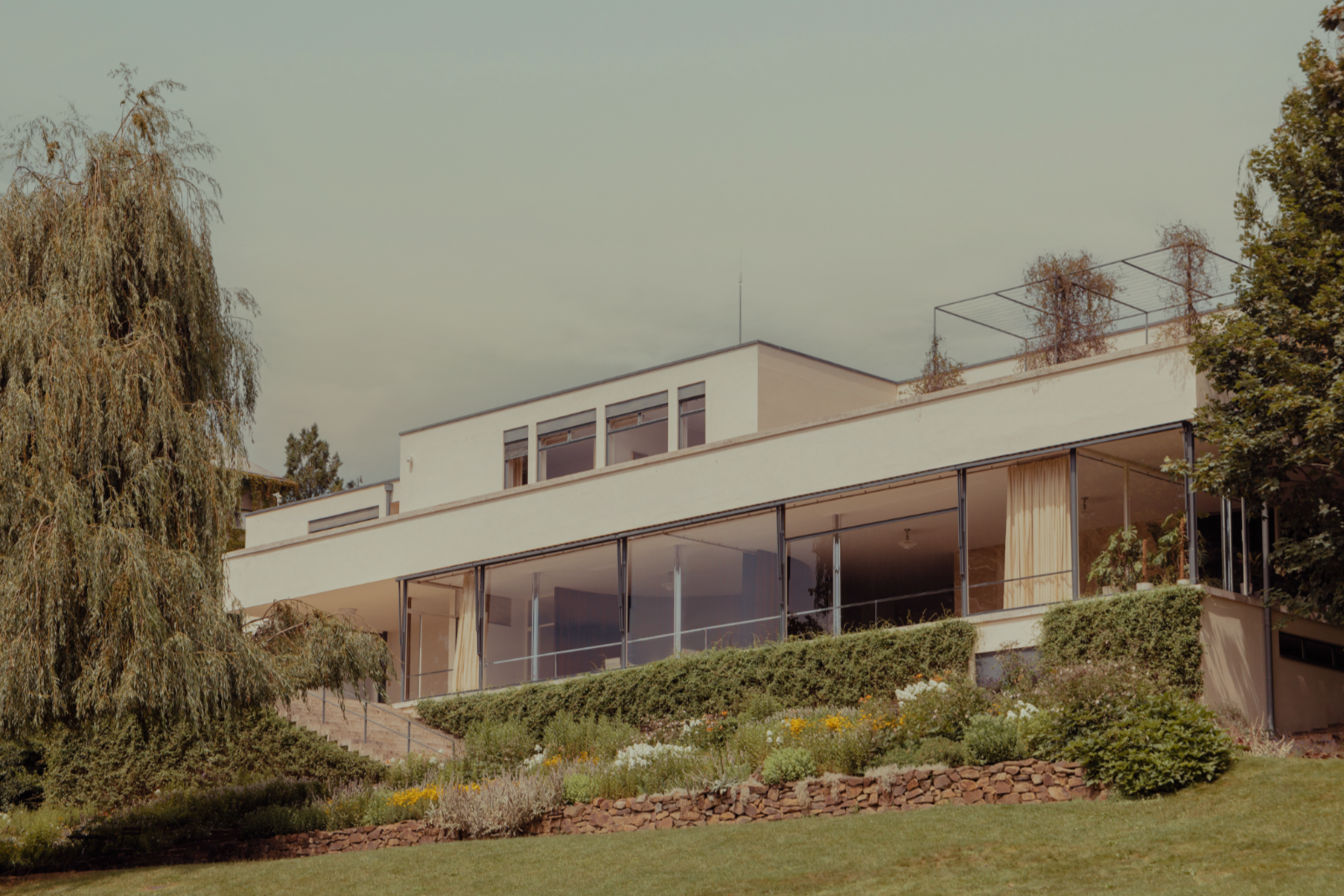
So it was only fitting that the team at Knoll returned the Tugendhat Chair to its birthplace to shoot the campaign for its resurrection, and with magnificent results. The chair itself was last in production in 1979. The reissued model is carefully faithful to the original - bottoms have not grown so much it seems - today though, nearly every design element can be customised: from the stainless steel finish to a variety of upholstery and leather choices for the cushions to options for chairs with or without arms. We’ll take ours armless with burgundy mohair velvet upholstery please.
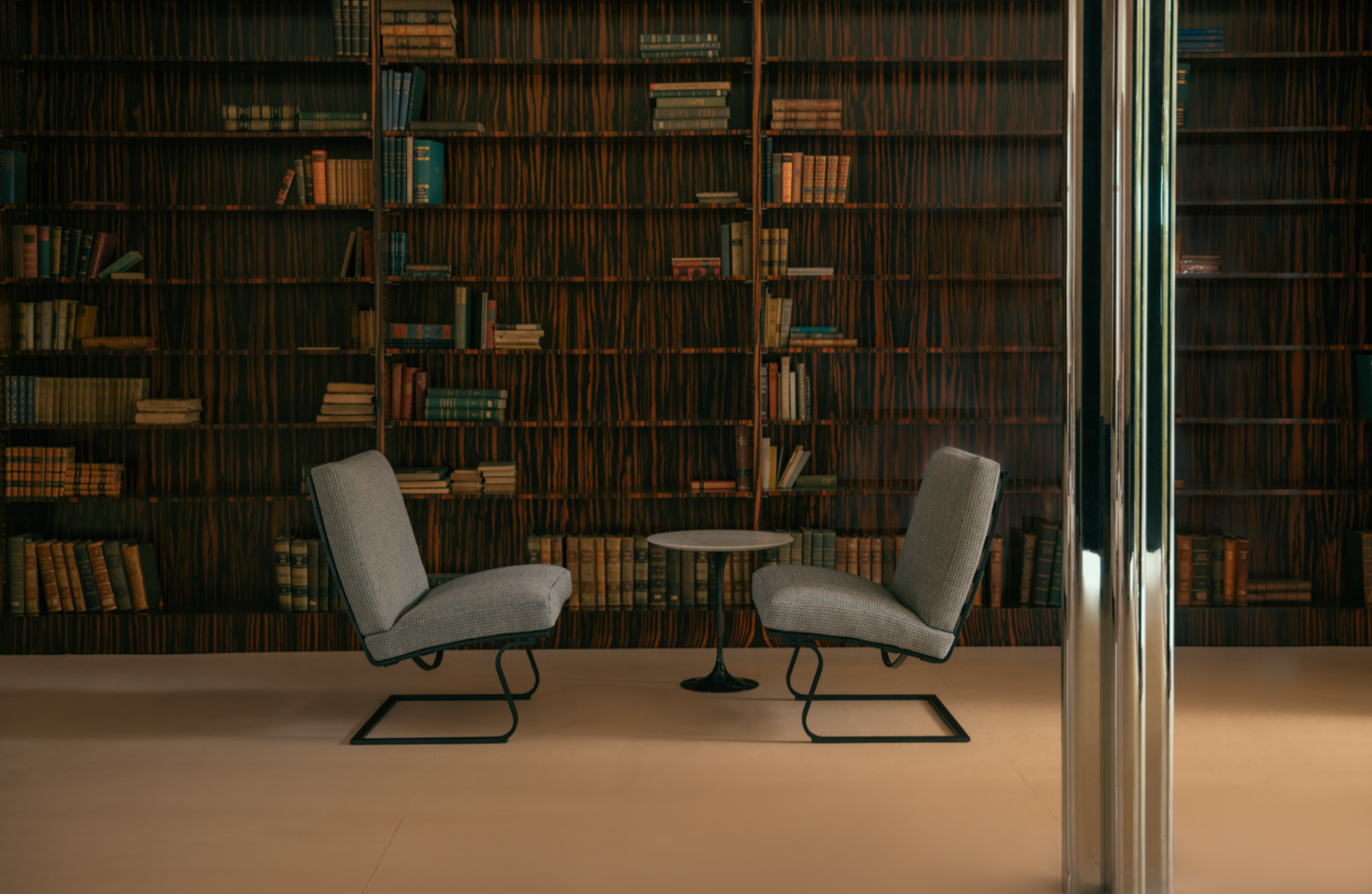
As the Tugendhat Chair comes back to market, we asked Jonathan Olivares, Knoll’s senior vice-president of design, to give us his take on rebirthing an icon (and yes, this is one of the only times that dreaded word is truly fitting).
Wallpaper*: Why the decision to reissue the Tugendhat chair at this moment in time?
Jonathan Olivares: Because it's so outstanding and for whatever reason was no longer in production. The chair has always been relevant and will always be... like a Roman bathtub, or throne, it relates to and elevates the human body.

W*: Did you uncover any surprising details or anecdotes in your research into the chair's origins?
JO: There were some small discrepancies between van der Rohe's original drawings and some of the archival pieces that we found. The drawings had equal spacing between the straps and the upper backrest bar, the archival pieces had a larger gap. We ultimately went with the drawings which seemed better proportioned.
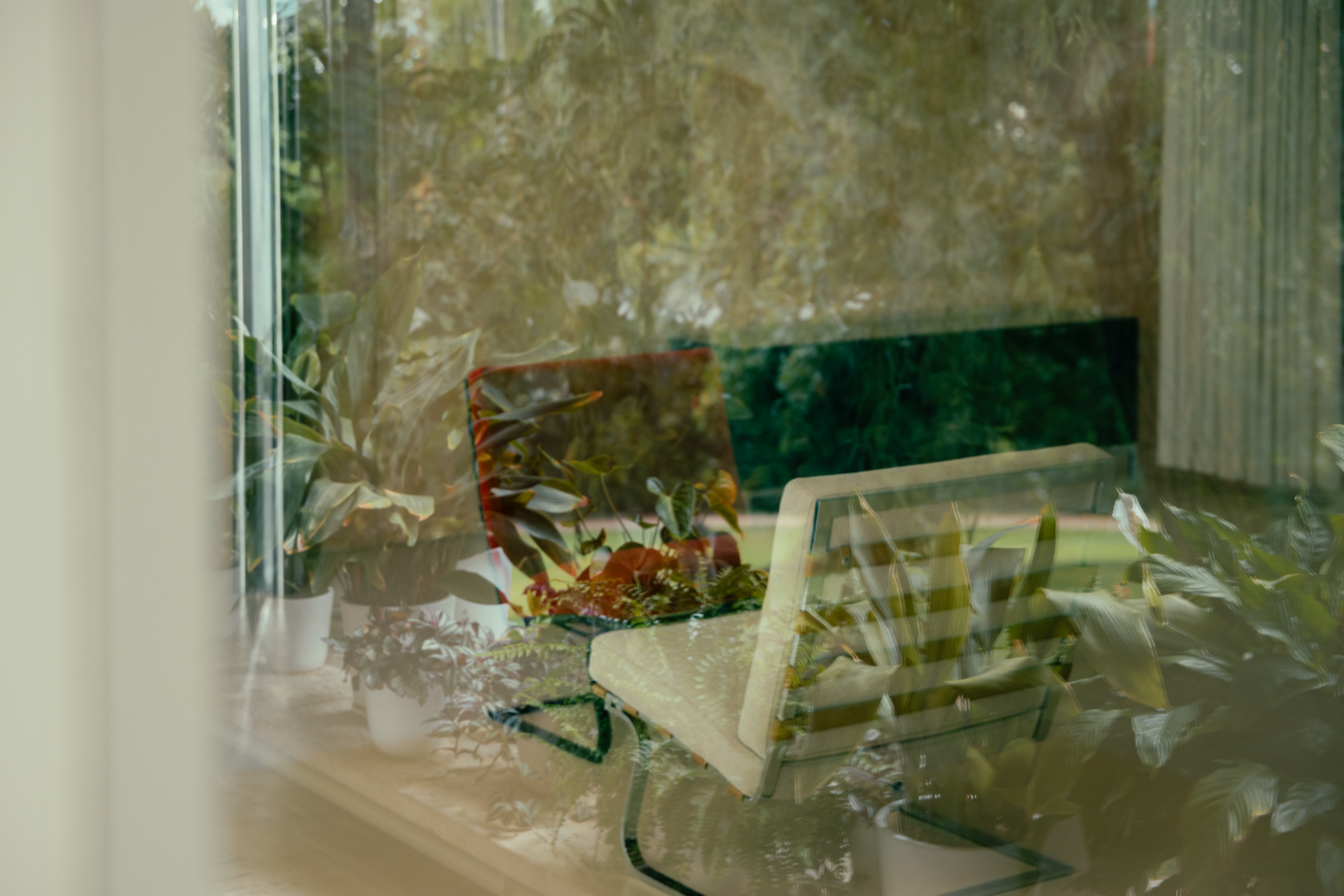
W*: Does it sit as happily in our lives today as it did in the 1930s?
JO: A remarkable aspect about van der Rohe's furniture is how rarified and exclusive it was. It was not meant to be affordable or democratic design. The Barcelona chair was made for the king and queen of Spain and the Tugendhat chair was for the wealthy owners of the villa Tugendhat. What is special today is that the designs, while remaining exclusive, are accessible to a wider public.
W*: Have you made any adaptations?
JO: The only adaptation are plastic glides that prevent the chair's steel base from scratching floors. Though purists can easily remove them.







